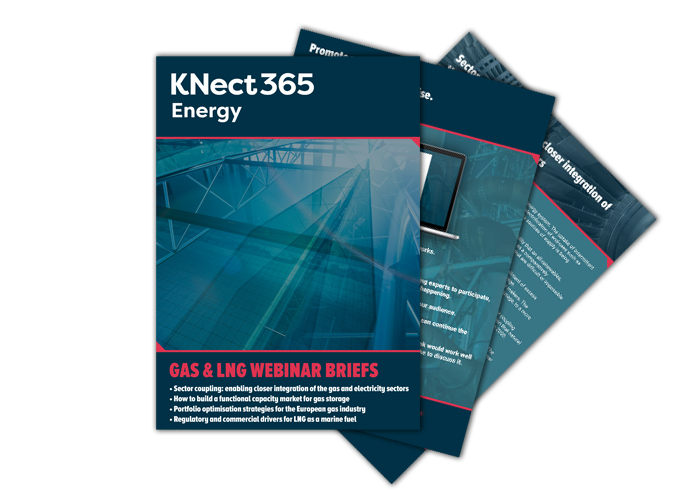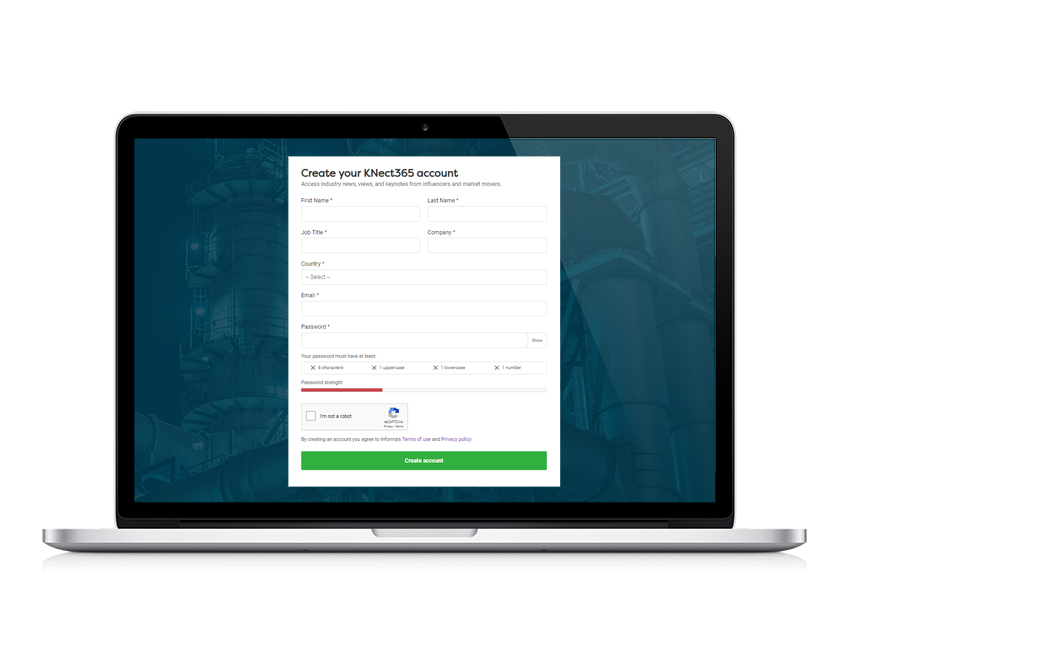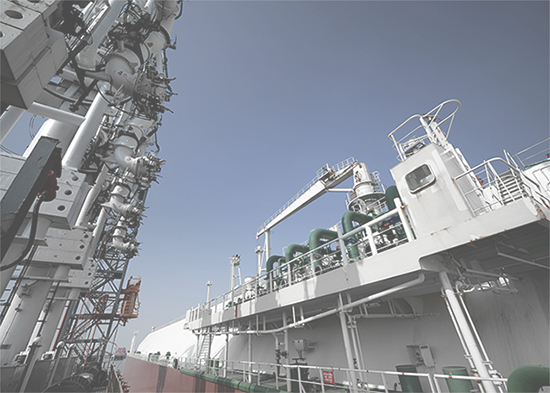In person & on-demand recordings,
Okura, Amsterdam
Gas & LNG Webinars
Promote your brand. Demonstrate your expertise. Generate Leads.
Webinar Briefs
Don't have a topic in mind? We've put together a selection ideas for you.
Inside this booklet you'll find outlines for four different webinars targeted at different sections of our audience:
- Sector coupling: enabling closer integration of the gas and electricity sectors. More info>>
- How to build a functional capacity market for gas storage. More info>>
- Portfolio optimisation strategies for the European gas industry. More info>>
- Regulatory and commercial drivers for LNG as a marine fuel. More info>>
Have a different topic idea? Get in touch - we’d like to discuss it.


How does webinar sponsorship work?
Confused about what webinar sponsorship involves? Here's a rundown.
Step 1: you help us to select a topic.
Step 2: We do the hard work of building a registration page, recruiting experts to participate, and marketing the webinar so people know it’s happening.
Step 3: You share your expertise and build credibility with our audience.
Step 4: We pass on verified leads after the webinar closes, so you can continue the conversation.
Audience profile
53,000+
Subscribers
7000+
LinkedIn Group Members
50%
Director/C-Suite/Management Level Attendance
Get involved
About your webinar
The webinar includes live audience Q&A, will feature your branding on the registration page and in pre-webinar promotion, and will be viewable live and on demand.
What you'll gain
- Grow your network and build your brand
- Generate verified leads
- Option to select your desired lead profile: filter by region, job title, company type, etc
Who you'll reach
Our digital subscriber base consists of natural gas, LNG and utilities professionals based in Europe and around the world. By sponsoring a KNect365 Energy webinar, you’ll reach a high-level audience of decision makers within a targeted industry segment.
Sector coupling: enabling closer integration of the gas and electricity sectors
The transition to a low carbon economy is placing pressure on the energy system. The uptake of intermittent generation options in the power sector is being accompanied by the electrification of end-uses such as transport and heating. This means that the challenge of more unreliable sources of supply is being aggravated by increasingly variable power demand.
Integrating the gas and power sectors can help to deliver some of the flexibility that an all-renewables, all-electrification route lacks. Low carbon gasses complement electrification as a comparatively cost-effective decarbonisation strategy by reducing emissions from end-uses that are difficult or impossible to electrify...


How to build a functional capacity market for gas storage
For almost a decade, the European gas storage industry has been dogged by low margins. Although storage can help to safeguard security of supply, prevent grid congestion and limit price hikes, storage operators insist that these services do not receive full compensation under the current market framework.
Without regulatory intervention, there are worries that persistently low margins will trigger closures. In the short-term, reductions in storage capacity would lead to billions of Euros in unrecoverable investment. In the long-term, closures could limit the continent’s ability to rely upon storage infrastructure to support the transition to a low carbon economy...
Portfolio optimisation strategies for the European gas industry
Long-term forecasts of European gas demand point to stabilisation followed by decline, as electrification and building efficiency improvements limit the need for gas heating across the continent. This stands in contrast to the global demand outlook for natural gas. The picture is one of robust long-term growth driven by air pollution concerns, LNG penetration in emerging markets and the development of new upstream resources.
Due in part to this shift, European oil & gas companies, utilities and trading houses are developing more complicated and regionally diverse asset portfolios. The portfolio business model provides these players with a way to tap into growth in emerging markets, take advantage of the expansion of LNG trading and hedge against investment risks...


Regulatory and commercial drivers for LNG as a marine fuel
There are high hopes for LNG in the shipping sector. The existing emissions control areas in Europe and North America have already spurred a switch to LNG in a small but growing section of the fleet. When the IMO’s sulphur regulations come into force in 2020, they will provide a global incentive for LNG uptake.
How large the market for LNG as marine fuel proves to be, and how rapidly it develops, is not yet clear. From a regulatory perspective, more stringent restrictions on NOX emissions in Europe could act as a further incentive for LNG uptake. On the other hand, new CO2 targets could shift focus away from LNG and onto a new generation of fuels and propulsion methods...
In person & on-demand recordings,
Okura, Amsterdam
